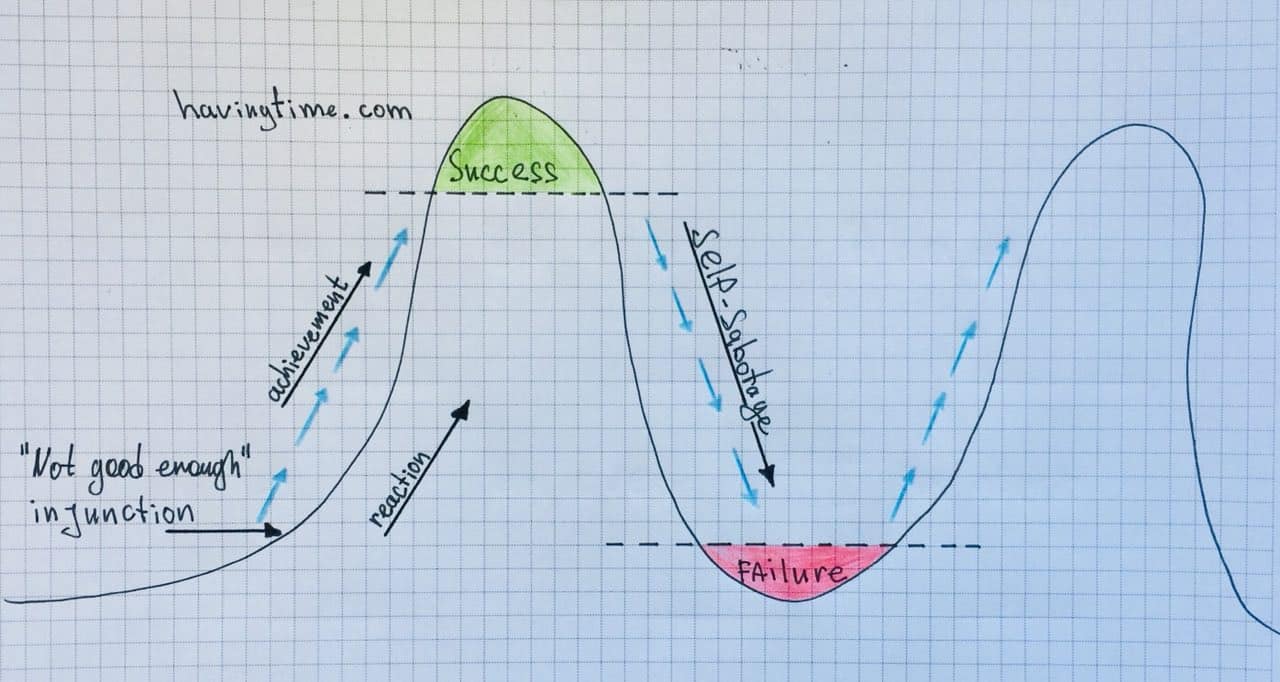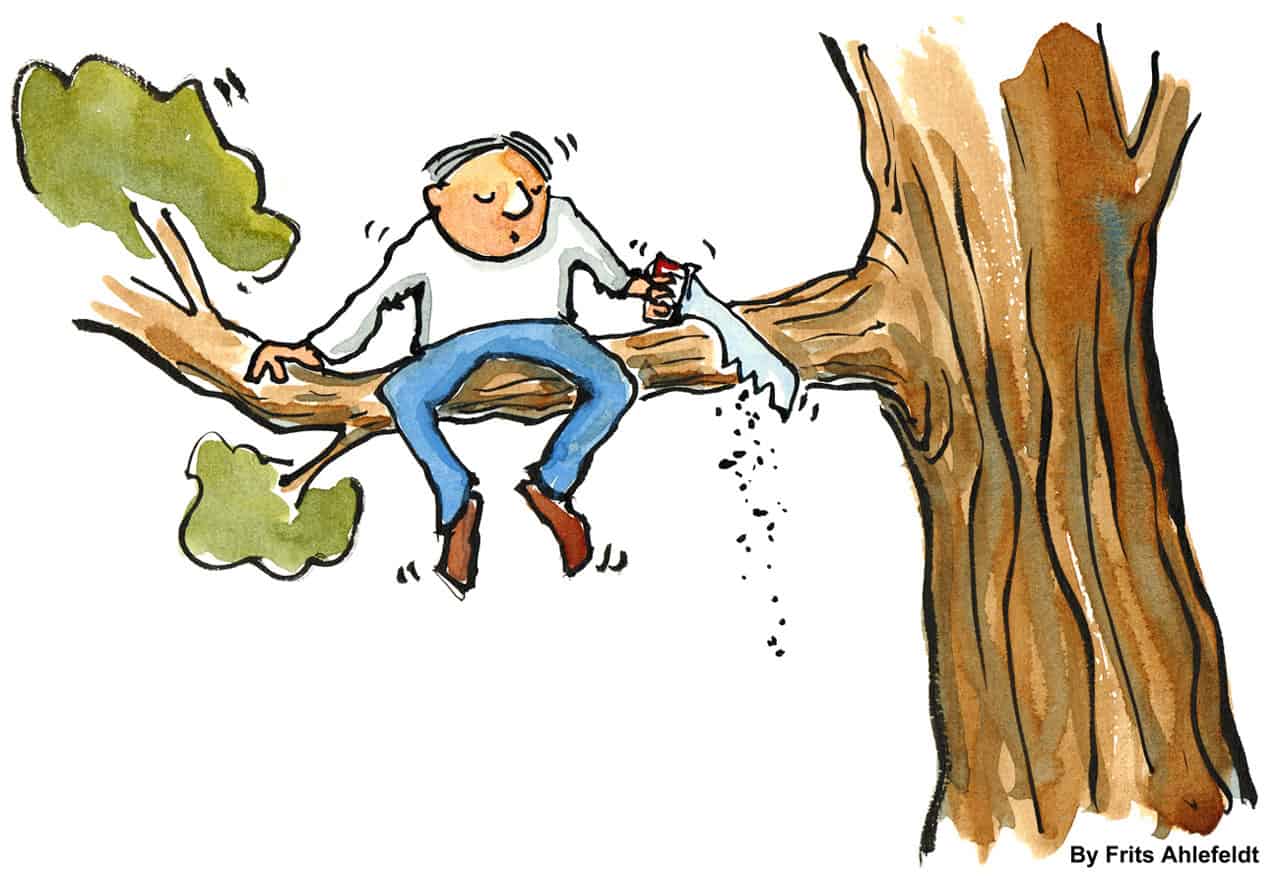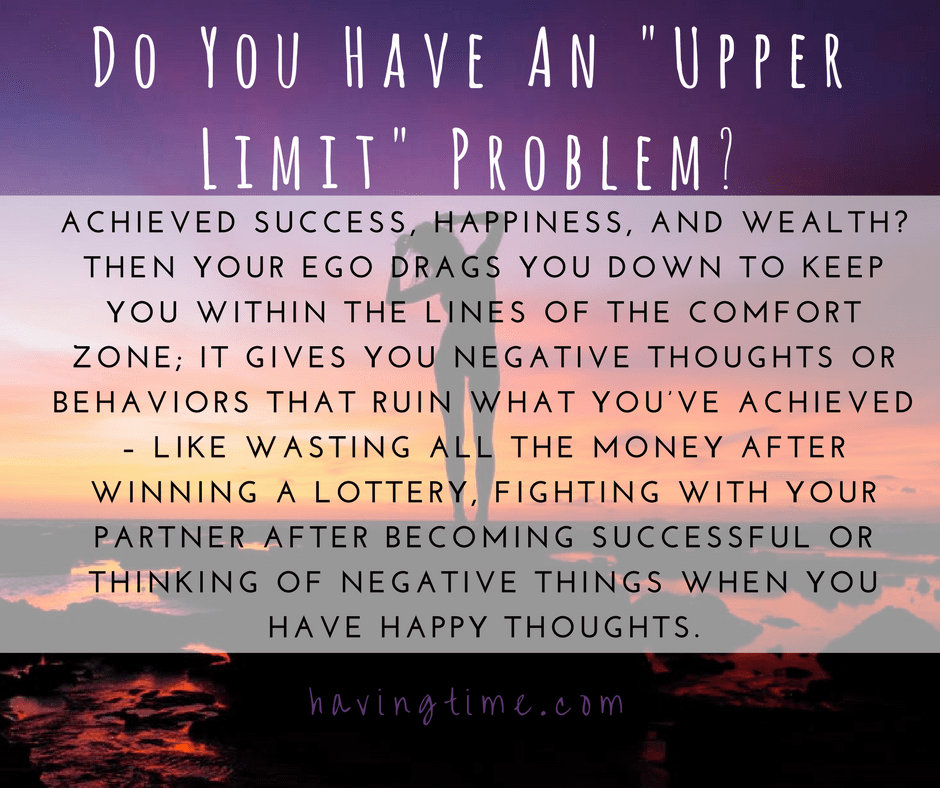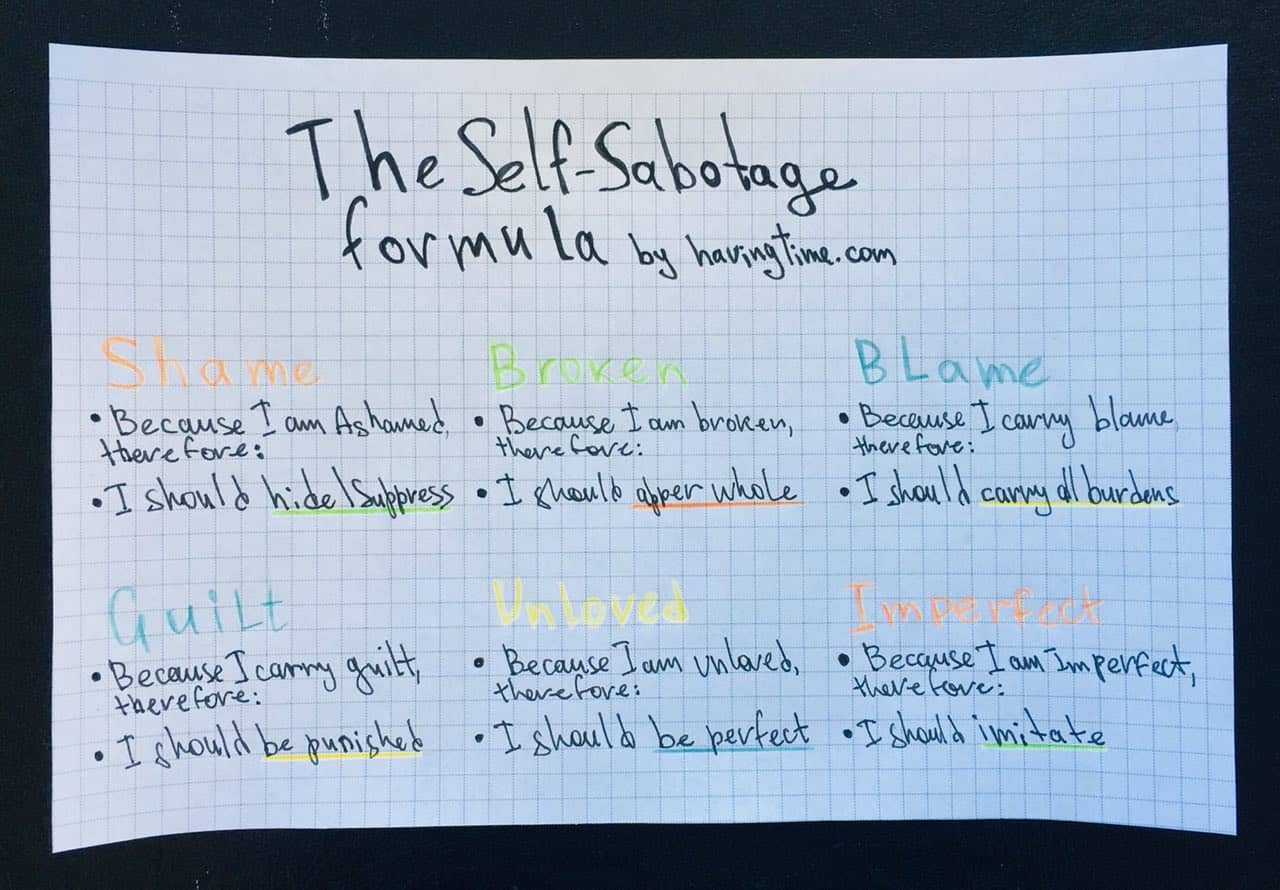Can you go back in time in your memory to when you found sabotaging yourself in your work, life, or significant relationship? Have you ever wondered precisely why you would do that? Is there a way to stop self-sabotage?

One of the things that may help understand self-sabotaging behavior better is to recognize that you are trying to shield yourself, protecting the status quo from the uncertainty that may dawn upon you once you take a risk, stepping outside of your comfort zone changing life for the better (or worse?).
Psychologists view self-sabotage as the subtle art of taking action against yourself; telling yourself compelling stories that you don’t want the things you actually do want and pushing away opportunities scattered around you.
What is Self-Sabotage?

When I was in the grips of severe self-sabotage, it was because I didn’t like, or have any respect for myself. I would take any criticism as a personal attack, and then use it as a proof I wasn’t good enough, smart enough, worthy enough. I would attempt to destroy significant relationships out of fear of being hurt so that I would run away first. And so forth! And only mindfulness meditation practice helped me realize just how much value I had, and how much the sheer miracle of my presence mattered to others. Yes, I still get gripped by self-sabotaging tendencies even now, but I try my best to step outside of the inner self-deprecating talk that goes on and step back into the present moment, becoming aware of what’s underneath my fear of moving on.

Why Do We Self-Sabotage?

Why do we self-sabotage? Why do we cut the very branch we sit on or when things are starting to pick up and get good? There is a simple answer – we might be facing an upper limit problem, and here’s what to do about it.
In his generous and inspiring book, The Big Leap: Conquer Your Hidden Fear and Take Life to The Next Level Gay Hendrix is offering profound insights into how we sabotage our success and let our perception of time rule us. When I was feeling low I turned to this book and had so many insights and aha moments; it inspired me to take action on something I had been dreaming about for a while, and to try a bit harder to get out of my own way! This is an excellent book to come back to when you need that extra kick to put you back on track to get going.

Watch this 5-minute video that gives an in-depth example of an upper limit problem and how to handle it best.
📌 we all have limited tolerance for #feeling good.
Now that you’ve learned a bit more about an upper limit problem let’s explore further, what some of the limiting beliefs might be at play triggering your fears or your strong resistance to taking action towards the quality of life you truly deserve.
Work:
- Every time I fail, it means I’m inadequate and stupid. Then everyone will know for sure that I’m not as smart as they think I am.
- My mum and dad always had high expectations of me, they wanted me to succeed and excel at everything, and I never wanted to be controlled by them. So I would be a stubborn donkey and resist what they want from me.
- I think I deserve to start right at the top and I won’t accept anything less (entitlement issue).
- I’m the creative type, and if I keep at it, I will succeed one day — even though I’ve been trying for ages. The idea of working for someone gives me a rash, so I will just keep telling everyone stories (who are still supporting me) that I’m getting closer to making it.

- Success or failure defines my worth as a human-being
- I’m inadequate as a person, and there’s nothing I can do about it.
- I cannot handle rejection or any loss very well.
- I have to give myself up to be loved by others.
These are just a few of the limiting beliefs and false stories that may be keeping you dead-still. You might want to dig deeper and uncover other false beliefs that trigger your fears.
Significant Relationships:
- No one can love me. I’m worthless. I’m not lovable.
- Once someone knows me, he/she will leave me straight away. I will always be left alone when I need someone’s presence the most.
- I will give up my freedom. I will lose my identity. I will have to give myself up to keep the relationship going.
- Being rejected is painful. I don’t want to take the chance of getting hurt.
For many of us, the fear of rejection and the fear of engulfment keep us out of any significant relationships.
How to Stop Self-Sabotaging Behaviour: Actionable Steps
- Start with noticing self-judgments. Incessant self-judgment is a significant form of shooting yourself in the foot. When you catch yourself passing harsh judgments about yourself, stop it, and know you are better than that boring negative self-talk.
- Change your definition of self-worth, from outcomes to sincere efforts. Decide that you will define your worth by the loving actions you take, rather than by specific results of the actions.
- Start seeing mistakes as steppingstones toward success, not a definition of your worth. Make it okay to fail and learn in the process.
- Allow yourself to be kind and compassionate towards your feelings. When you choose to embrace your feelings with compassion, rather than with judgment, you will stop being so afraid of being hurt.
- Decide to stay true to yourself. You will never fear rejection or engulfment when you choose to be true to yourself, and you are willing to take loving action on your behalf — even if another person might not approve of it.
People call it ‘getting in your own way,’ people call it self-defeating behavior, you may call it accidentally-yet-on-purpose shooting yourself in the foot… Whatever you choose to call it, if you have a long-standing goal, you can make sure it doesn’t happen when you run a self-sabotaging pattern.
But you can stop self-sabotage by paying attention and becoming aware of the existing limiting beliefs, challenging them and then taking action, expanding your upper limits and changing the quality of your life for the better. Starting now.


